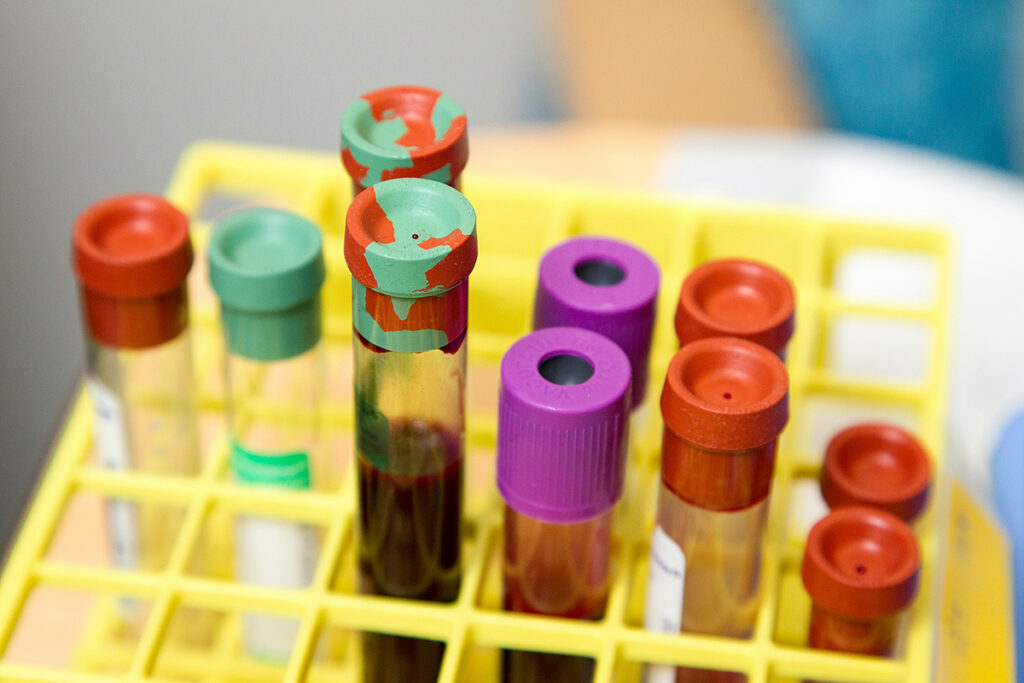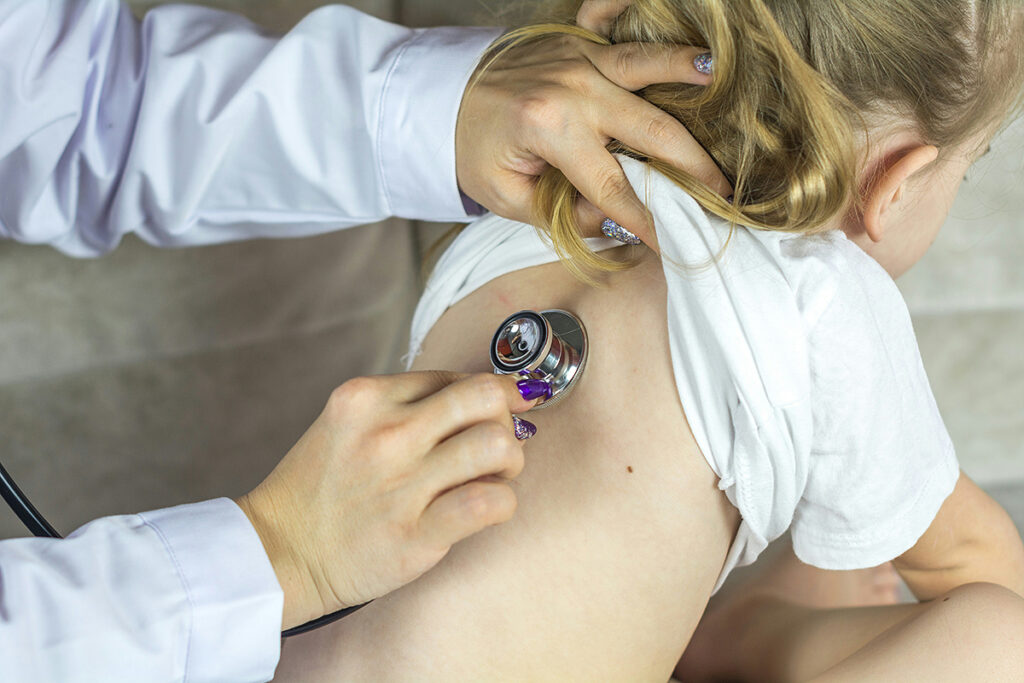Some individuals struggle to eliminate the virus after recovering from COVID-19. In post-COVID syndrome patients, active coronavirus or its genetic material persists in tissues, forming a reservoir. The virus can linger in lymph nodes, the chest, the brain, and other areas, even with negative test results. Similar phenomena are observed with other viruses, such as Ebola and Zika. Viral reservoirs can serve as sources of chronic diseases, impacting health long after recovery from the acute phase of the illness.
Viral Proteins Concealed in Tissues during Post-COVID Syndrome
Determinations about the presence of a SARS-CoV-2 reservoir in post-COVID syndrome rely on tissue samples, plasma protein analysis, and immune response assessments. Tissue studies indicate the existence of viral RNA and proteins in various organs of post-COVID syndrome patients months after the illness. SARS-CoV-2 proteins are detected in the blood plasma a year or more after the acute phase of COVID-19. Consequently, the coronavirus can persist in tissues for an extended period, altering blood composition and triggering prolonged post-COVID syndrome symptoms.
Up to 16 months after COVID-19, at least one coronavirus protein is present in the plasma of post-COVID syndrome patients. The inability to detect SARS-CoV-2 proteins in some patients’ blood may indicate only the absence of the virus in the bloodstream. However, the virus may persist in tissue reservoirs, where viral proteins are less likely to enter the bloodstream, eluding detection by modern analyses.
Plasma levels of viral proteins may fluctuate, potentially linked to increased virus replication in reservoirs when immune control diminishes, explaining periodic symptoms in post-COVID syndrome patients.
Adaptive Immunity Responds to Coronavirus Reservoirs
The differentiation of T-cells, influenced by viral proteins, provides crucial insights into the persistence of the virus in the body. Post-COVID syndrome patients exhibit coronavirus-specific T-cells, elevated levels of T-killers, T-helpers, inflammatory markers, and intensified antibody responses to the spike protein. These findings confirm the presence of a viral reservoir and the activation of immune responses.
Mechanisms Through Which Coronavirus Reservoirs Cause Post-COVID Syndrome
The preservation of SARS-CoV-2 in reservoirs can lead to post-COVID syndrome through six mechanisms:
- Inflammatory and Immune Reactions: Viral RNA and proteins activate pattern recognition receptors, inducing cytokine production and inflammatory reactions. Chronic virus presence may result in exaggerated immune responses, immune cell exhaustion, or altered differentiation, leading to tissue damage or immunopathology.
- Cytopathic Effects: Active SARS-CoV-2 replication or prolonged presence of viral proteins and RNA can damage various tissues and organs. Neuronal infection may cause damage to the central or peripheral nervous system.
- Suppression of Innate Immune Response: SARS-CoV-2 proteins may suppress the innate immune response, leading to local immune system suppression.
- Disruption of Signaling Pathways: Coronavirus proteins can alter cellular metabolism and gene activity, contributing to chronic symptoms without evident tissue pathology.
- Hypercoagulation and Microthrombosis: Post-COVID syndrome patients exhibit non-disruptive microthrombi, suggesting increased blood coagulability. The S1 protein may induce structural changes in fibrinogen, an essential blood-clotting protein, leading to abnormal thrombus formation.
- Reactivation of Latent Infections: The SARS-CoV-2 reservoir may disturb immune regulation, promoting the reactivation of latent infections, possibly associated with producing coronavirus proteins that suppress interferon signals crucial for fighting viral infections.
Coronavirus Reservoirs Disrupt Gut Microbiome: Underlying Mechanisms in Post-COVID Syndrome
In the pathogenesis of post-COVID syndrome, a pivotal role is played by the imbalance of the microbiome. Four mechanisms contribute to the development of post-COVID syndrome:
- Impact on Immune Response: The SARS-CoV-2 reservoir in the body can disrupt immune response regulation, influencing the microbiome. Changes in microbiome diversity and activity have repercussions on overall health.
- Interaction with Metabolites: Microbiome-produced products regulate the body’s metabolism, immune, and hormonal systems. Microbiome imbalance can alter metabolite production, affecting immune status and overall health.
- Predisposition to Infection: Microbiome dysbiosis predisposes individuals to infection and hinders virus clearance from the body. A balanced microbiome supports regular immune system activity and stimulates the production of compounds vital for pathogen neutralization.
- Increased Gut Permeability: SARS-CoV-2 reservoirs and microbiome dysbiosis may accompany mild local inflammation, leading to heightened epithelial barrier permeability. This facilitates the movement of coronavirus proteins or microbial products into the bloodstream, potentially causing or sustaining inflammatory processes.
Coronavirus Reservoirs and Autoimmune Diseases
Antibodies that react to the body’s normal proteins may be produced in response to the coronavirus. Kreye and colleagues confirmed the presence of neutralizing antibodies to the coronavirus, which reacts to proteins in the heart, intestines, lungs, kidneys, and brain. T-cells and antibodies attacking the body’s tissues may emerge during acute infection and be sustained by the SARS-CoV-2 reservoir. An example of such viral behavior is seen in the Epstein-Barr virus, which persists in the body and can induce autoimmune diseases.
Coronavirus Reservoirs Alter Vagus Nerve Signaling
SARS-CoV-2 reservoirs may cause nonspecific post-COVID syndrome symptoms such as fatigue, concentration problems, muscle and joint pain, sleep disturbances, anxiety, and depression. These manifestations could be linked to the impact on the vagus nerve.
The vagus nerve’s myriad branches innervate organs and regulate inflammation levels. Even without a systemic immune response, vagus nerve branches may detect immune responses to SARS-CoV-2 in tissues, leading to neuroinflammation and the onset of post-COVID syndrome symptoms.
Coronavirus Reservoirs Increase the Risk of Neurodegenerative Diseases
The penetration and prolonged presence of the coronavirus in the central nervous system (CNS) may be associated with neuroinflammation and the emergence of cognitive, neurological, and psychiatric symptoms in individuals with post-COVID syndrome.
Studies on organoids, animals, and human tissue samples confirm that the coronavirus can impact the CNS, increasing the risk of Alzheimer’s disease. Researchers have identified an elevated risk of Alzheimer’s disease in the elderly after COVID-19. Analysis of brain tissue in severely ill patients revealed increased levels of amyloid plaques associated with Alzheimer’s disease.
Beta-amyloid, accumulating in the brain in Alzheimer’s disease, functions as an antimicrobial peptide, protecting the brain from infections. The presence of SARS-CoV-2 in the CNS or reactivation after COVID-19 of other viruses, such as herpesviruses, may activate the protective function of beta-amyloid, heightening the risk of Alzheimer’s disease in both the short and long term.
Conclusion
The coronavirus can persist in the body long after the acute phase of COVID-19, creating reservoirs in tissues. Coronavirus reservoirs may be a primary cause of post-COVID syndrome, with mechanisms including inflammatory reactions, cytopathic effects, suppression of the innate immune response, disruption of signaling pathways, hypercoagulation, and microthrombosis, as well as reactivation of latent infections. These processes may induce tissue damage and immunopathology, contributing to the onset of post-COVID syndrome symptoms.
Disruption of the gut microbiome also plays a role in the development of post-COVID syndrome. The gut microbiome influences immune response, metabolism, infection susceptibility, and permeability.
Coronavirus reservoirs may lead to the formation of antibodies directed not only against the virus but also against tissues in the heart, intestines, lungs, kidneys, and brain. Moreover, reservoirs impact the vagus nerve, causing post-COVID syndrome symptoms such as fatigue, concentration problems, sleep disturbances, anxiety, and depression.
The prolonged presence of the virus in the central nervous system increases the risk of neurodegenerative diseases due to the activation of the antimicrobial function of beta-amyloid, which protects the brain from infections but contributes to the development of Alzheimer’s disease. Complete elimination of the virus may require prolonged administration of antiviral drugs. Combined treatment with various antiviral drugs may enhance therapy effectiveness and reduce the risk of drug resistance. Other approaches, such as improving gut microbiome balance and stimulating the vagus nerve, may also aid post-COVID syndrome treatment.
Useful article, necessary information? Share it!
Someone will also find it useful and necessary:
Reference
SARS-CoV-2 reservoir in post-acute sequelae of COVID-19 (PASC)



